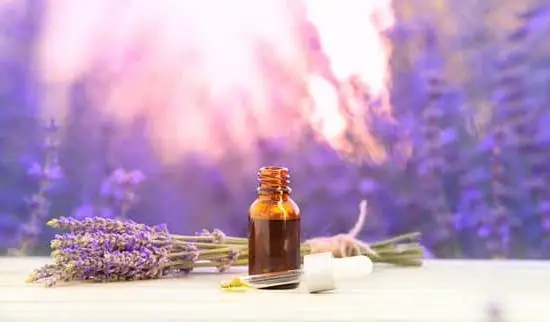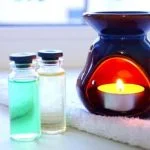Aromatherapy has become a popular practice in the realm of holistic health and wellness, offering a natural and sensory-based approach to promoting relaxation, reducing stress, and enhancing mood. The use of essential oils for their therapeutic benefits has gained widespread appeal, leading to the question: can people be addicted to aromatherapy?
In this article, we will explore the concept of aromatherapy and its growing popularity in holistic health practices, while also delving into the potential addictive nature of this alternative therapy.
Aromatherapy is rooted in ancient traditions and has been used for centuries as a means of improving overall well-being. Essential oils derived from plants are known for their aromatic properties, as well as their potential to offer physical and emotional support.
The practice involves the use of these oils through inhalation, topical application, or diffusion, with the aim of harnessing their natural healing properties. While aromatherapy is often associated with relaxation and stress reduction, there is increasing interest in understanding its impact on addiction as well.
As we delve deeper into the world of aromatherapy and its perceived benefits, it is essential to examine whether there is a potential for individuals to develop an addiction to essential oils. By exploring the origin, purpose, and benefits of aromatherapy, we can gain insight into how this practice may impact individuals on both a physiological and psychological level.
Understanding the science behind aromatherapy is crucial in determining whether excessive reliance on essential oils can lead to addictive behavior and its associated risks.
Understanding Aromatherapy
Aromatherapy is a holistic healing treatment that uses natural plant extracts to promote health and well-being. The practice has been around for centuries and has deep roots in ancient civilizations such as the Egyptians, Greeks, and Romans. Aromatherapy is often used to reduce stress, anxiety, improve sleep quality, and promote relaxation.
Essential oils are the key components of aromatherapy and are extracted from various parts of plants through distillation. These highly concentrated oils are then inhaled or applied to the skin after being diluted with a carrier oil.
The benefits of aromatherapy are numerous and can positively impact both physical and emotional well-being. The inhalation of essential oils stimulates the olfactory system, the part of the brain connected to smell, including the nose and brain. Molecules that enter the nasal passage can also affect the limbic system, which is a part of the brain that plays a role in emotions, behaviors, sense of smell, and long-term memory.
This is why certain smells can trigger memories or feelings. For example, lavender is known for its calming effects when inhaled while peppermint is believed to boost energy levels.
In addition to promoting relaxation and reducing stress, aromatherapy can also enhance mood by positively affecting neurotransmitters in the brain like serotonin and dopamine. These chemicals play an essential role in regulating mood and emotions which explains why certain scents can alter how people feel throughout their day. With its long history and wide range of benefits, it’s no wonder why aromatherapy enjoys great popularity among individuals seeking alternative methods for improving their mental and physical health.
| Benefits | Effects |
|---|---|
| Promotes relaxation | Stimulates olfactory system |
| Reduces stress | Affects limbic system |
| Enhances mood | Positively affects neurotransmitters |
The Science Behind Aromatherapy
Aromatherapy has gained significant popularity in recent years as a holistic approach to health and wellness. The use of essential oils for promoting relaxation, reducing stress, and enhancing mood has become increasingly popular in alternative medicine practices. But what exactly is the science behind aromatherapy, and how do essential oils impact the human body and mind?
Physiological Effects
Essential oils have been found to have a direct impact on the body’s physiological responses. When inhaled or applied to the skin, these potent plant extracts can trigger various biochemical reactions that contribute to physical wellbeing.
For example, some essential oils have been shown to have anti-inflammatory properties, while others can stimulate circulation or aid in digestion. The specific chemical compounds present in different essential oils interact with receptors in the body, influencing processes such as hormone production, immune function, and pain perception.
Psychological Effects
In addition to their physiological effects, essential oils also have profound psychological impacts. The olfactory system plays a vital role in how aromatherapy works, as inhaling certain scents can trigger emotional responses and affect mood. Some essential oils are known for their calming and sedative properties, making them effective tools for managing stress and anxiety.
Others are uplifting and energizing, able to promote feelings of positivity and alertness. The psychological effects of aromatherapy are closely linked to the limbic system in the brain, which controls emotions and memory.
Understanding the science behind aromatherapy helps shed light on its therapeutic potential but also raises questions about addictive potential. While there is evidence supporting the physiological and psychological benefits of essential oils, it’s important to explore whether excessive use
Can Aromatherapy Be Addictive?
Aromatherapy has gained significant popularity in recent years as a holistic approach to health and wellness. The use of essential oils derived from plants for relaxation, stress reduction, and mood enhancement has become a common practice in various settings, including spas, yoga studios, and even in the home. As more people incorporate aromatherapy into their daily routines, there has been a growing concern about the potential for developing an addiction to these natural fragrances.
While traditional addictions typically involve substances such as drugs or alcohol, the concept of being addicted to aromatherapy may seem unusual to some. However, it is essential to understand that addiction can manifest in different forms, not limited to chemical substances. The repetitive use of essential oils to elicit feelings of calmness or happiness can lead to psychological dependence on aromatherapy for emotional support.
Several studies have suggested that the inhalation and topical application of essential oils can affect certain neurotransmitters in the brain, such as serotonin and dopamine. These neurotransmitters play a vital role in regulating mood and emotions. As a result, individuals who find relief and comfort from using essential oils may develop a habitual reliance on them, leading to potential addictive behavior.
To further explore the possibility of addiction to aromatherapy, several key points should be considered:
- Research findings on the impact of essential oils on brain chemistry
- Psychological factors contributing to dependence on aromatherapy
- Potential signs and symptoms of addiction to aromatherapy
By delving into these areas, we can gain a better understanding of whether people can indeed become addicted to aromatherapy and how best to address this issue with mindfulness and moderation.
Signs of Aromatherapy Addiction
Aromatherapy is a popular practice that involves using essential oils to promote relaxation, reduce stress, and enhance mood. While many people enjoy the benefits of aromatherapy in moderation, there is a question that arises: Can people be addicted to aromatherapy? It’s important to understand the potential signs and symptoms of addiction to aromatherapy and the implications for individuals who rely excessively on essential oils for emotional support.
Here are some potential signs of addiction to aromatherapy:
- Feeling anxious or agitated when unable to access or use essential oils
- Using essential oils in larger quantities or more frequently than intended
- Neglecting other responsibilities or activities in favor of using essential oils
- Experiencing withdrawal symptoms when not using essential oils
It’s important to recognize that while aromatherapy can have positive effects on mental and emotional well-being, excessive reliance on essential oils can lead to negative consequences. Individuals who find themselves exhibiting these signs should consider seeking help and exploring holistic approaches to finding balance and moderation in their use of essential oils.
If you or someone you know is struggling with an addiction to aromatherapy, it’s crucial to seek support and explore alternative methods for managing emotions and promoting relaxation. Whether it’s through counseling, mindfulness practices, or other forms of holistic wellness, there are resources available for individuals looking to break free from excessive reliance on essential oils. Remember that balance is key in all aspects of life, including the use of aromatherapy.
Risks and Consequences
Can Have Detrimental Effects on Both Physical and Psychological Health.
Physical Health Risks
Excessive use of certain essential oils can lead to physical health issues such as skin irritation, allergic reactions, respiratory problems, and headaches. For example, prolonged exposure to certain essential oils through inhalation or direct skin contact can result in sensitization or irritation. Additionally, some individuals may experience adverse reactions when using undiluted essential oils or applying them directly to the skin without proper knowledge or guidance.
Psychological Health Risks
Can Potentially Hinder an Individual’s Ability to Develop Healthy Coping Mechanisms
and manage their emotions in a balanced way.
Finding Balance and Moderation
Can Learn How to Use Aromatherapy Safely and Responsibly,
avoiding potential risks associated with excessive reliance on essential oils. Ultimately, finding a balance between enjoying the benefits of aromatherapy while being mindful of its potential risks is crucial for maintaining overall well-being.
Treatment and Recovery
Aromatherapy has been used for centuries as a holistic practice to promote overall well-being and relaxation. However, the question remains: can people be addicted to aromatherapy?
While there is limited research on this specific topic, it is important to note that any behavior or substance has the potential for addiction, including aromatherapy. Addiction to aromatherapy may manifest in various ways, such as excessive use of essential oils, dependence on certain scents for emotional support, and difficulty in functioning without the use of aromatherapy products.
It is crucial for individuals who suspect they may have an addiction to aromatherapy to seek help and support from healthcare professionals and mental health experts. Treatment for addiction to aromatherapy can involve cognitive-behavioral therapy, counseling, support groups, and mindfulness practices. Additionally, exploring holistic approaches such as yoga, meditation, and massage therapy can aid in finding balance and moderation in the use of essential oils.
It’s important to recognize that while aromatherapy can offer numerous benefits for overall well-being, it should be used mindfully and consciously. Individuals who are struggling with addiction to aromatherapy should not feel shame or guilt but rather seek assistance in addressing their dependency on essential oils. By acknowledging the addictive potential of aromatherapy and taking proactive steps towards recovery, individuals can find a healthier balance in their holistic wellness practices.
| Proactive Steps Toward Recovery | Summary |
|---|---|
| Seeking Professional Help | Individuals should seek guidance from healthcare professionals and mental health experts |
| Holistic Approaches | Incorporating practices such as yoga, meditation, and massage therapy can help find balance and moderation |
| Mindful Use of Aromatherapy | Acknowledging the addictive potential of aromatherapy and using essential oils consciously |
Conclusion
In conclusion, the question of whether people can be addicted to aromatherapy is a complex one that requires careful consideration. While there is no evidence to suggest that aromatherapy itself is physically addictive in the same way as substances like drugs or alcohol, it is important to acknowledge the potential for psychological dependence on essential oils for emotional support.
The soothing and uplifting effects of certain scents can make individuals feel reliant on them for managing stress and enhancing their mood, leading to excessive use and potential negative consequences.
It is crucial to approach aromatherapy with mindfulness and conscious awareness of its use. Rather than relying solely on essential oils for emotional support, individuals can explore holistic approaches to finding balance and moderation in their wellness practices. This may include incorporating other relaxation techniques such as meditation, yoga, or exercise, as well as seeking professional support if they feel they are becoming overly dependent on aromatherapy.
Ultimately, while aromatherapy can offer significant benefits for promoting relaxation and emotional well-being, it is essential to use it in a balanced and mindful manner. By understanding the potential risks of excessive reliance on essential oils and exploring holistic approaches to wellness, individuals can enjoy the therapeutic effects of aromatherapy while avoiding the pitfalls of dependency.
With an informed and conscious approach, people can harness the power of aromatherapy as a valuable tool in their holistic health practices without falling into unhealthy patterns of reliance.
Frequently Asked Questions
Is Too Much Aromatherapy Bad?
Too much aromatherapy can potentially be bad, as inhaling large amounts of essential oils can lead to respiratory issues or allergic reactions. It’s important to use aromatherapy in moderation and follow safety guidelines.
Are There Any Negative Effects to Aromatherapy?
There can be negative effects to aromatherapy, especially when used improperly or excessively. Some people may experience headaches, skin irritation, or nausea from certain oils. It’s crucial to research and understand the potential drawbacks.
Is It Safe to Inhale Aromatherapy Oils?
Inhaling aromatherapy oils can be safe when done correctly. It’s important to dilute essential oils before inhalation and use them in well-ventilated areas. Some individuals may have sensitivities, so it’s best to proceed with caution when using aromatherapy oils for inhalation.

Are you looking for a natural way to improve your health and wellbeing?
If so, aromatherapy may be the answer for you.





